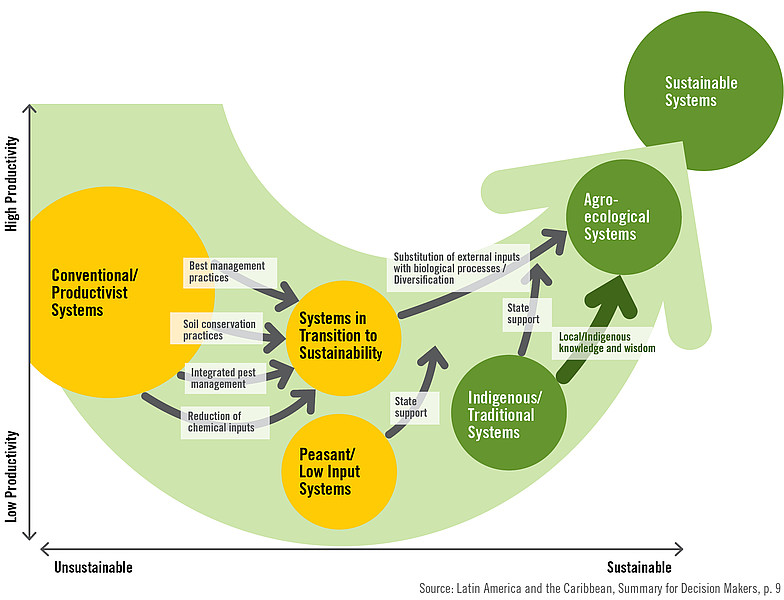Agroecology And Food Justice Promoting Equitable Systems
Let's dive into the wonderful world of agroecology. With its sustainable practices and holistic approach to farming, agroecology is gaining traction among farmers and communities worldwide. In this post, we will explore the key concepts of agroecology, creative ideas for its application, recommendations for aspiring agroecologists, a listicle of the benefits it provides, and a summary of its significance. So, without further ado, let's get started!
Agroecology is a farming practice that emphasizes the ecological balance between crops, livestock, and the environment. It aims to create sustainable and regenerative food systems that promote biodiversity, soil health, and social well-being. By working with nature rather than against it, agroecologists seek to address the challenges posed by conventional, industrial agriculture.
What sets agroecology apart is its recognition of the interconnections between ecology, society, economics, and culture. It acknowledges that agricultural practices should not compromise the well-being of farmers or degrade the environment. Instead, it strives to enhance the resilience of farming systems, improve food security, and empower local communities.
Ideas For Incorporating Agroecology:
- Implementing Polyculture: Instead of relying on monocultures, agroecology promotes the cultivation of diverse crops in the same area, which enhances pest control and reduces the need for chemical inputs.
- Integrating Livestock: Agroecology embraces mixed farming, where livestock and crop production complement each other, allowing for a more efficient use of resources and the recycling of nutrients.
- Promoting Agroforestry: Planting trees alongside crops provides shade, conserves soil moisture, and enhances carbon sequestration, contributing to climate change mitigation.
- Embracing Organic Farming: By avoiding synthetic pesticides and fertilizers, agroecologists prioritize the health of soils, ecosystems, and consumers.
- Supporting Local Food Systems: Agroecology emphasizes shorter supply chains, enabling farmers to connect directly with consumers, reducing food miles, and enhancing food sovereignty.
Recommendations For Aspiring Agroecologists:
- Acquire Knowledge: Deepen your understanding of ecological principles, soil science, and sustainable farming practices.
- Engage in Hands-On Experience: Gain practical skills by volunteering on agroecological farms or participating in community gardening projects.
- Collaborate and Connect: Join local organizations or networks that promote agroecology to learn from experienced practitioners and exchange ideas.
- Advocate for Policy Change: Support policies that incentivize agroecology, such as subsidies for transition farmers and regulations that prioritize sustainable farming methods.
- Educate and Empower: Share your knowledge and passion for agroecology with others through workshops, webinars, or social media platforms.
Listicle of Benefits Offered by Agroecology:
- Enhanced Biodiversity: Agroecological practices encourage a wide range of plant and animal species to coexist, preserving genetic diversity and supporting ecosystem health.
- Improved Soil Health: By minimizing tillage and increasing the use of organic matter, agroecology promotes soil fertility, water retention, and carbon sequestration.
- Reduced Environmental Impact: Agroecological practices minimize the use of synthetic inputs, reducing pollution, minimizing greenhouse gas emissions, and protecting water resources.
- Greater Resilience: Diverse agroecosystems are more resilient to climate change impacts, pests, and diseases, providing farmers with a buffer against unforeseen challenges.
- Social Equity: Agroecology promotes local and sustainable food production, empowering small-scale farmers, and enhancing food sovereignty.
Question & Answer:
Q: Is agroecology only suitable for small-scale farming?
A: No, while agroecology is often associated with small-scale farming, its principles and practices can be adapted for large-scale agricultural systems as well.
Q: Does agroecology prioritize traditional farming methods?
A: Agroecology builds upon traditional knowledge and practices but also incorporates modern scientific advancements to create innovative and sustainable farming systems.
Summary of Agroecology:
Agroecology offers a promising alternative to conventional farming practices that prioritize high yields at the expense of the environment and rural communities. By adopting agroecological approaches, we can foster sustainable food systems, protect biodiversity, mitigate climate change, and ensure a more equitable distribution of resources. It's time to embrace agroecology and pave the way for a more harmonious relationship between agriculture and the planet!
Let's celebrate the incredible potential of agroecology and work towards its widespread adoption. By supporting farmers who practice agroecology, advocating for policy changes, and making conscious choices as consumers, we can contribute to a more sustainable and resilient future for agriculture. Together, we can cultivate a thriving planet that provides an abundance of nutritious food for generations to come.

Post a Comment for "Agroecology And Food Justice Promoting Equitable Systems"